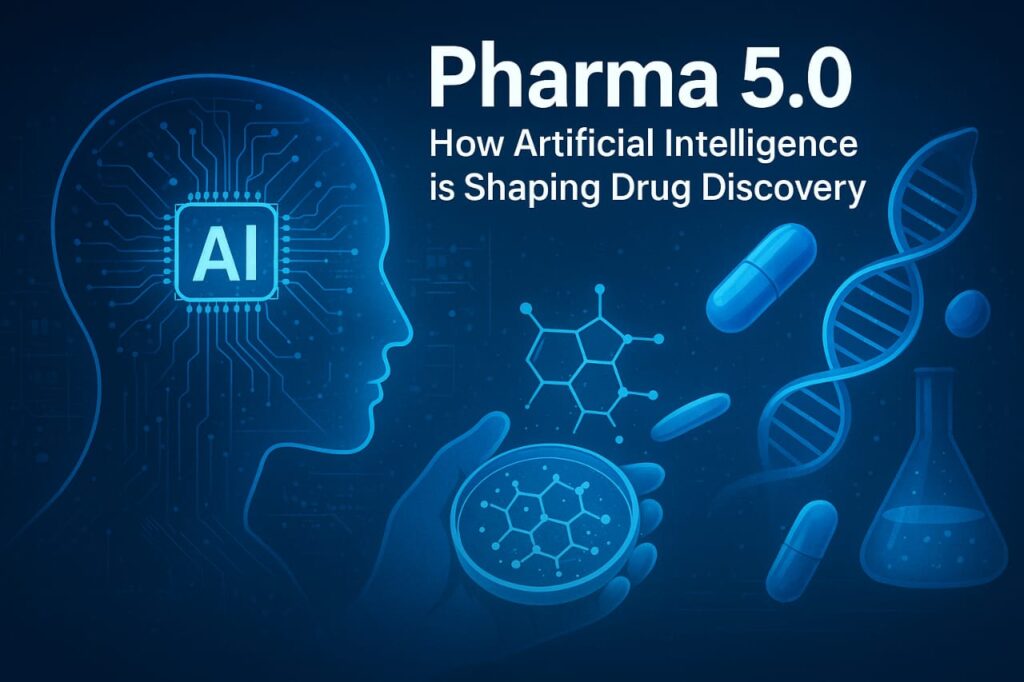
The drug industry is witnessing a colossal change. With the advent of Pharma 5.0, a new revolution is underway—one where artificial intelligence (AI) is driving drug discovery quicker, smarter, and more accurate. From interpreting massive biological data to forecasting clinical trial success, AI is transforming our approach to medicine.
What is Pharma 5.0?
Pharma 5.0 is the future of pharmaceutical advancement, following Pharma 4.0 (which centered around digitalization and automation). It centers around human-AI collaboration, sustainability, and patient-focused innovations. Unlike the earlier stages, Pharma 5.0 isn’t merely about efficiency—it’s about smart systems alongside scientists to drive some of the largest healthcare problems.
The Role of AI in Drug Discovery
1. Accelerating Target Identification
Historically, it would take years to identify a biological target for a disease. Today, AI software inspects genomic, proteomic, and clinical information to identify in minutes the most likely drug targets with greater precision. This allows researchers to target the most likely areas from the beginning.
2. Smarter Drug Design
AI-based platforms can predict how molecules will behave against particular proteins in the human body. Not only does this limit trial-and-error experiments, but it also creates new drug candidates that would never have been identified through conventional chemistry strategies.
3. Repurposing Existing Drugs
During the pandemic of COVID-19, AI was utilized to screen available drug libraries to locate treatments with possible antiviral properties. The process of drug repurposing is conserving time as well as money and providing new life to existing drugs.
4. Augmenting Clinical Trials
AI assists in choosing the right patients for clinical trials based on electronic health records and genomic information. This makes trials more effective, with greater success rates and lower dropout rates.
5. Foretelling Drug Safety and Efficacy
Machine learning algorithms are able to predict the performance of a drug within the human body, identifying possible side effects ahead of time and before expensive clinical trials have started. This minimizes the chance of late-stage failure trials.
Real-World Examples
DeepMind’s AlphaFold has transformed protein structure prediction, and new pathways to drug design are opening.
AI is being employed by companies such as Insilico Medicine and BenevolentAI to identify and fine-tune drug candidates at a record pace.
Pharmaceutical giants like Pfizer, Novartis, and AstraZeneca are spending big on R&D pipelines powered by AI.
Challenges Ahead
Although AI has tremendous potential, there are issues—like data privacy, algorithmic bias, regulatory clearances, and the necessity of human intervention. Pharma 5.0 makes it clear that AI will not supersede scientists but enable them with enhanced tools.
The Future of Drug Discovery
As we progress further into the Pharma 5.0 age, the intersection of AI, biotechnology, and human know-how will give rise to innovations in precision medicine, quicker cures for orphan diseases, and cheaper healthcare solutions. The ultimate aim is not quicker drug discovery, but wiser and more individualized medicine for all patients.